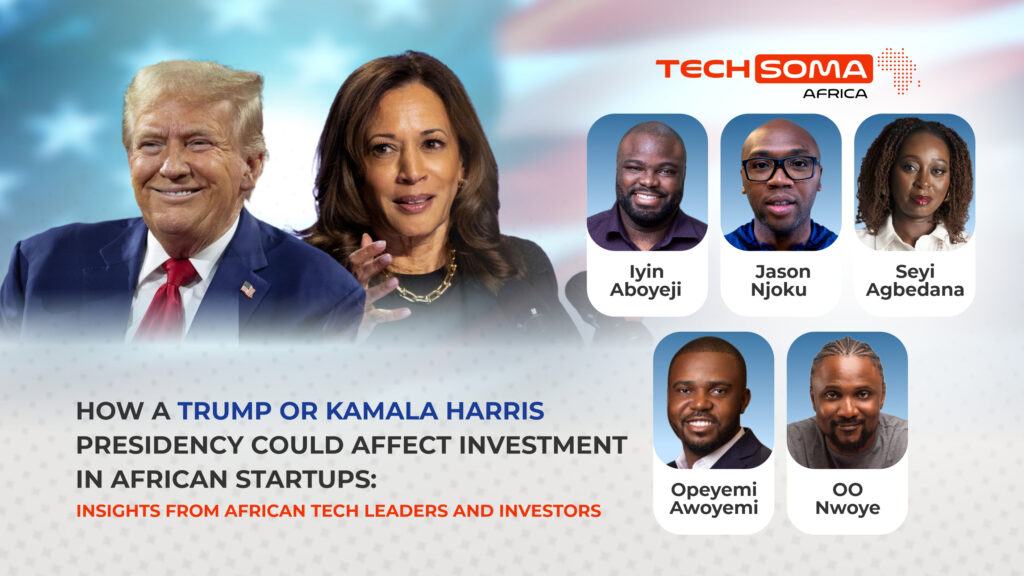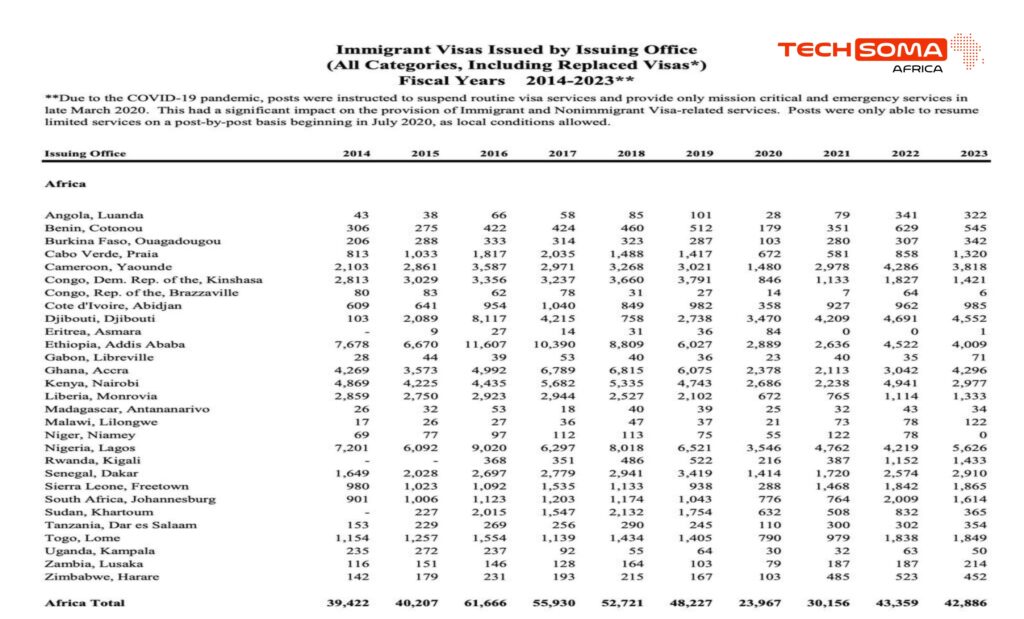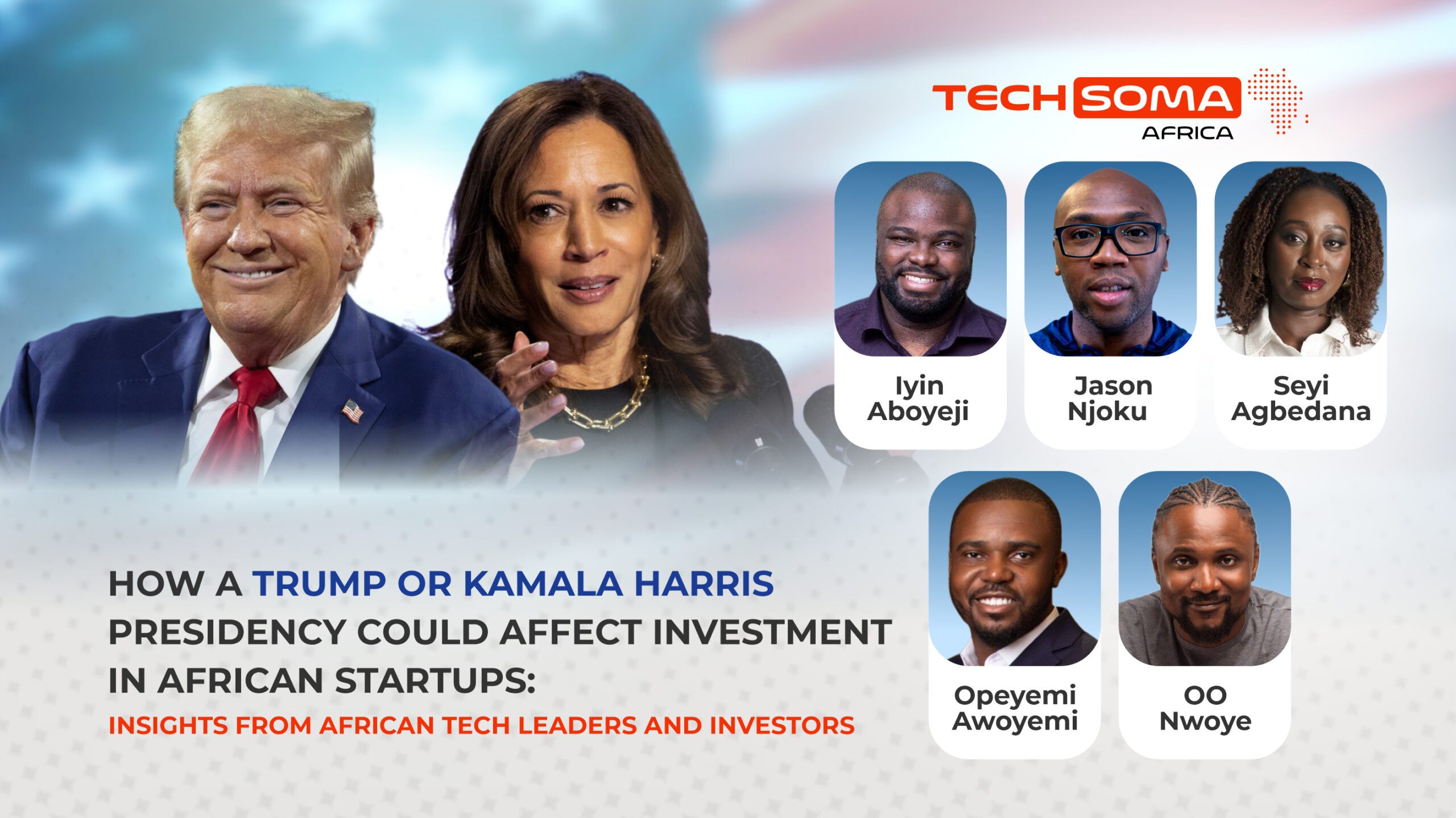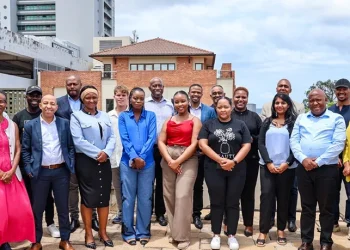The U.S. election day is here, and with different patterns already emerging from early voting, the global community is closely watching its potential outcomes. For those of us deeply involved in the tech ecosystems of Africa and the Middle East, this election holds particular significance, as it could shape foreign policy, funding patterns, and investor engagement in these regions. Having worked in the tech industry across Africa and the Middle East for over a decade and participating in various funding cycles, I recognize the importance of U.S. leadership decisions on investment flows and support for African startups.

This election has left African tech founders and investors speculating on how a Donald Trump or Kamala Harris presidency might impact U.S.-based funding, immigration, and access to global networks. Here’s an exploration of each candidate’s possible influence, with insights from some of the region’s most influential tech leaders deeply invested in Africa’s growth trajectory. This analysis also draws on U.S. Department of State data on immigrant visas issued by African U.S. consulates, which reveals trends under different administrations, especially regarding talent mobility crucial for African startups.
Donald Trump: A Transactional Approach with Potential Setbacks
A Trump presidency could bring a renewed emphasis on “America First” policies, likely reducing government-backed support for African initiatives in favour of domestic priorities. His past term saw a transactional approach to foreign policy, with aid often tied to security or transactional goals rather than economic partnerships. This approach also extended to immigration policies, significantly reducing pathways for African talent to access opportunities in the U.S.
An analysis of immigrant visa data from the U.S. Department of State shows a stark reduction in visa issuance during Trump’s administration. Countries with strong ties to the U.S., such as Nigeria, Ghana, and Ethiopia, saw substantial declines in visas issued, with the COVID-19 pandemic exacerbating this trend. For African startups, this restriction posed significant challenges, as the movement of talent is crucial for entrepreneurs looking to engage with U.S.-based accelerator programs, investor networks, and educational exchanges.
Iyinoluwa Aboyeji, Managing Partner of Accelerate Africa and ex-co-founder of African unicorns Flutterwave and Andela, believes African startups must look inward for sustainable growth. With his experience building two of Africa’s most successful ventures, Aboyeji emphasizes that African entrepreneurs should mobilize support from the African diaspora, whom he sees as “evangelists” for the continent’s tech ecosystem. He suggests that regardless of U.S. policy, the diaspora can play a pivotal role in supporting Africa’s innovation, driving funding, and building resilience against external changes.
Limited Trade Relations and Rising Competition from Global Powers
Trump’s scepticism towards multilateral trade agreements may lead to diminished engagement with African markets. For instance, the African Growth and Opportunity Act (AGOA), which provides African nations duty-free access to U.S. markets, could be deprioritized under a Trump administration, potentially affecting startups seeking trade partnerships with the U.S.
Seyi Agbedana, CEO of the startup Genzaar and a seasoned professional with experience at global payment giants like VISA and PwC, believes Africa needs a shift from a charity-based narrative to one of strategic investment. Seyi argues that as the U.S. pulls back, countries like China and the UAE could increase their presence, leading African startups to rely more heavily on non-Western investors to meet funding needs. Her focus on investment over aid reflects a broader sentiment that Africa’s demographic advantage and economic potential make it an attractive partner for those willing to commit to long-term development.
Opportunities for Crypto and Deregulation
Trump’s inclination towards deregulation and support for crypto markets could indirectly benefit African fintech, especially given the growing adoption of blockchain and digital currencies across the continent.
OO Nwoye, founder and Executive Director of TechCircle, has dedicated his work to supporting African startup founders in early-stage development, fundraising, and strategy. Nwoye believes Trump’s deregulation policies could attract increased investment in African crypto ventures, where digital currencies have become central to financial inclusion. By fostering a crypto-friendly environment, Nwoye sees opportunities for African startups to benefit from cross-border investments driven by U.S. deregulation trends.
Kamala Harris: Inclusive Growth and Partnership-Oriented Policies
Kamala Harris brings a contrasting perspective, emphasizing diplomacy, inclusion, and equitable growth. Her background in social justice and economic empowerment suggests she would advocate for inclusive policies that foster an environment favourable to gender equality, minority representation, and sustainable development in Africa.
The U.S. Department of State’s data on immigrant visas shows a gradual increase in visa issuance under the Biden-Harris administration. This shift has begun to restore access to U.S.-based resources for African talent. Policies facilitating movement between Africa and the U.S. are critical for bridging the gap between the two regions and providing African startups access to a larger pool of resources and expertise. Idris Bello, an influential angel investor and co-founder of LoftyInc, advocates for this open approach, believing it would provide crucial support for African entrepreneurs, particularly those from underrepresented groups.

Bello, a proponent of “Afropreneurship”—entrepreneurship focused on Africa—believes that a Harris presidency could create supportive structures for African startups, particularly for female entrepreneurs and minority-led ventures. His work at LoftyInc has shown him that Africa’s challenges, such as access to finance and education, require tailored, high-impact solutions. Bello argues that Harris’s policies would resonate well with the continent’s diverse demographics, aligning with the needs of inclusive, innovation-driven businesses.
Digital Economy and Climate Initiatives
A Harris administration could prioritize digital transformation initiatives in Africa, focusing on internet access, digital skills development, and tech infrastructure. These efforts would bridge Africa’s digital divide and create opportunities for U.S. tech companies to invest in African startups across e-commerce, fintech, and edtech.
Jason Njoku, founder of IrokoTV and a pioneering figure in African media streaming, who has no direct opinion on the American elections has long advocated for self-reliant, locally centred business growth. While U.S. policy under Harris might support Africa’s digital transformation, Njoku believes that African entrepreneurs must focus on building resilient businesses that add local value. He frequently emphasizes that success comes not from external investment but from a robust local market. For Njoku, the lesson from ventures like Paystack, which grew with limited venture capital by prioritizing customer needs, demonstrates that African tech can thrive independently of U.S. policy.
Emphasis on Climate Tech and Renewable Energy
Harris’s commitment to climate action could also drive U.S. investment in African renewable energy startups and sustainability-driven solutions. With Africa’s urgent need for climate resilience and sustainable agriculture, a Harris presidency may channel funding towards startups addressing these environmental challenges.
Opeyemi Awoyemi, Partner at Fast Forward Venture Studio and co-founder of multiple successful African businesses, some of which are exited, supports this approach, urging African entrepreneurs to prioritize value creation. Awoyemi sees climate tech as an area where African innovation can make a global impact, and he believes funding will flow as long as African startups demonstrate real-world, scalable solutions. According to him, “money isn’t red or blue—it’s green,” and venture capital will back opportunity, regardless of politics.
A Future Built on Self-Reliance
As highlighted in the U.S. Department of State data, the fluctuating trends in visa issuance over the past decade underscore the importance of policy in shaping the African tech ecosystem’s access to global opportunities. A Trump or Harris presidency could impact African entrepreneurs’ ability to engage with U.S.-based resources, investors, and markets. However, regardless of who wins the upcoming U.S. election, African entrepreneurs are charting a path to self-sufficiency. By building resilient, value-driven businesses and strengthening networks within the continent and among the diaspora, African startups are poised to thrive, creating lasting impact in sectors like fintech, climate tech, and digital transformation.
Now is the time for African founders, investors, and advocates to take control of Africa’s tech destiny. Let’s invest in sustainable growth, amplify local solutions, and foster collaborations that build a powerful foundation for the future. If you’re part of the African tech ecosystem or looking to support it, join the movement to champion Africa’s innovation on the global stage—invest, mentor, and engage. The future of African tech is in our hands.















